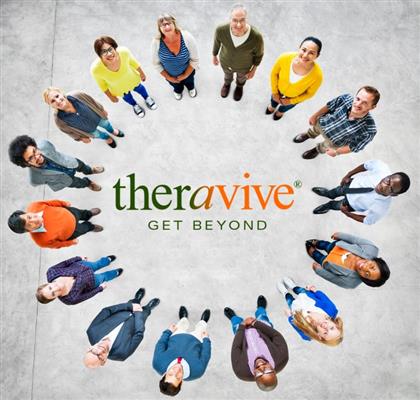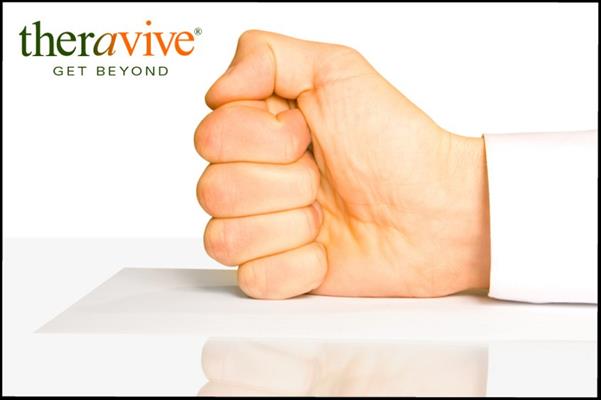Several different types of counseling, including Art Therapy, are available and have been shown to help people heal from the effects of emotional trauma (Moon, 1994). Art Therapy, specifically, has been a treatment for mental illness for over 100 years, but it is a type of therapy that people may not consider when seeking help. This type of therapy can help both children and adults to process a traumatic event and begin to heal (Art Therapy and Mental Health, 2009).
[More]
A diverse population of people seeks behavioral health services every year, and it’s essential that they receive services that are effective and culturally sensitive. Developing cultural competence is an ongoing, lifelong process. There is always more to learn. When counselors have cultural awareness and competence, the clients they serve are more likely to engage, reach their goals, and have a positive experience with behavioral health services.
FB- Are you culturally competent? Find out if you understand what it means to be aware of diverse populations and its importance in our lives.
[More]
October 12, 2014
by David Porter, MA

What is normal vs. abnormal exists on a continuum that varies from one culture and historical time period to the next. Clinicians will be most effective when they have a broad knowledge base of other cultures, as well as a good operational definition of this term.
[More]
October 11, 2014
by David Porter, MA

Values, beliefs, and perspectives in rural areas differ from what is found in urban areas, including how mental illness and substance abuse are defined and treated. The rural environment poses unique treatment challenges, and ethical conundrums. The clinician, who works in these areas, particularly if they originate from and have been raised in an urban center, will have a greater chance of successfully delivering treatment if they are familiar with the cultural norms in rural areas.
[More]
October 10, 2014
by David Porter, MA

If you are a MH/SA staff, providing counseling, psychotherapy, case management, or medication to this population, there is a certain degree of risk involved. The risk is greater if you work with an offender population, and individuals with a history of violence. If proper precautions are taken, support and protection are provided from co-workers and the agency, proper training is received, and good judgment based on training and education are exercised, safety to staff, as well as patients and bystanders, is enhanced. However, improper handling will result in problems.
FB- Mental health and substance abuse workers are unfortunately at risk for experiencing violence in the workplace. Here are some things you can do to protect yourself.
[More]
It’s nearly impossible to get a 4 year old to sit still in a chair for an hour to do a traditional counselling session. I have found many diverse ways to communicate, understand, and build a therapeutic relationship with my younger clients.
[More]
It is my belief that solidarity can touch both clinician and anyone accessing services. In an individualistic world we are bombarded by messages that we need to be able to do things on our own and it permeates through our being, influencing our action. However this is completely contrary to our nature. We are born dependant and needing to be cared for and we thrive in community. Therefore the concept of solidarity is necessary and takes belonging to the next level.
[More]
Emotionally focused therapy proposes that emotions themselves have an innately adaptive potential that, if activated, can help clients change problematic emotional states or unwanted self-experiences. Emotions themselves do not inhibit the therapeutic process, but people’s perception is seen as the challenge that creates stuck-ness.
[More]
July 1, 2013
by Ashley Marie

There is a lot of hype about social media, and I understand its advantages. I have a network of friends across the globe that I can tap into within seconds. I can Skype my sister in California, Facebook my friend in New York, Tweet to my former classmate in London, and comment on my boyfriend’s Instagram photo taken in Winnipeg – all with very little effort.
The Dawn of Social Media
This digital connectivity is a historically recent phenomenon.
Its beginnings trace back to 1991, when Tim Berners-Lee connected hypertext technology with the Internet, leading to the creation of the World Wide Web.[1] Soon, email replaced snail mail and weblogs replaced printed diaries and journals. New communities formed online, creating alternate means of social interaction.
A decade later, Web 2.0, a term coined by Darcy DiNucci,[2] shifted the dynamics of virtual communities. Instead of only allowing Internet users to passively read online content, Web 2.0 now permitted individuals to actively interact as creators of user-generated content. Today, social media outlets – such as Facebook, Twitter, Google+, LinkedIn, and Skype – form a large part of social interactions.
How Social is Social Media?
We have witnessed a series of technological breakthroughs, but has there been a corresponding social breakthrough? Has social media contributed to us becoming more social?
Proponents of social media suggest that it has enhanced our relationships. Rainie et al., for instance, claim that individuals should not fear the Internet; rather, if they learn how to network effectively online, they can benefit from endless possibilities to offer support, exchange information, and converse with people all across the globe.[3]
But while online communities can produce a greater quantity of personal contacts, they tend to diminish the quality of interactions.
Malcolm Gladwell is critical of the laziness that social media encourages. He argues that it is so easy for people to participate in social networks that they end up devoting less time and energy to their interactions with others.[4]
Social media eases connectivity, but connectivity is not the same as connection. I can instant message my father in Guadalajara, but our online conversation will only scratch the surface of a deep father-daughter connection.
The bases of profound relationships – such as trust, commitment, and compatibility – are difficult to strengthen via pixels on sleek displays, no matter how aesthetically appealing and user-friendly they might look.
As pointed out by Monserrat, a person's tone of voice and body language is essential to forming strong relationships.[5] It is easy to ‘like’ a friend’s Facebook photo, but it takes more time and involvement to show someone that you sincerely care about their well-being.
Some interactions on social media can even produce anti-social behaviours.
A survey conducted by VitalSmart revealed that 1 in 5 individuals has blocked, unsubscribed, or unfriended someone else due to an online quarrel.[6] In other words, bullying, rudeness, and disrespect have permeated a medium intended to foster favorable social interactions.
Therapists: Listening Ears to Deaf Crowds
Means of communication are changing quickly, and therapists should reflect on how to respond to this new age of hyper-interconnectivity. They should not fear social media, but they should understand its strengths and weaknesses.
Participating in online networks can help build a therapist’s practice, allow for up-to-date exchanges of information, as well as produce healthy dialogues about mental health issues.
However, therapists should also recognize that – perhaps more than ever – they have unique contribution to make to the quality of people’s lives.
Fast-paced lifestyles combined with superficial virtual communities can produce social alienation, causing many to disconnect from others and even from themselves.
For some, a therapist might be the only person who can offer a full hour of their time to listen to their story, provide helpful insights, and encourage them along their journey – all without the interruption of Tweets, Facebook messages, Instagram photos, and LinkedIn updates.
Therapists offer a breath of fresh air in a world polluted by restless online hyperactivity.
[1] Van Dijck, J. 2013. The Culture of Connectivity: A Critical History of Social Media. New York: Oxford UP, pp 5.
[2] DiNucci, D. 1999. Fragmented Future, Print Magazine. pp 32, 221-2.
[3] Rainie, H., L. Rainie, and B. Vellman. 2012. Networked: The New Social Operating System. Cambridge, MA: MIT Press, pp. 255.
[4] Gladwell, M. Small Change, The New Yorker, [online] Available at:
<http://www.newyorker.com/reporting/2010/10/04/101004 fa_fact_gladwell> [Accessed 30 June 2013].
[5] Monserrat, A. Leadership Means Face-to-Face, Not Facebook, Forbes, [online] Available at: < http://www.forbes.com/sites/forbesleadershipforum/2011/ 08/29/the-social-media-fallacy-real-leadership-means-face-to-face-not-facebook/> [Accessed 30 June 2013].
[6] People more likely to be rude on social media; affects friendships in real life. Daily News, 10 April 2013. [online] Available at: <http://www.nydailynews.com/life-style/friendships-cut-short-social-media-article-1.1312747#ixzz2XjSTFeew> [Accessed on 30 June 2013].